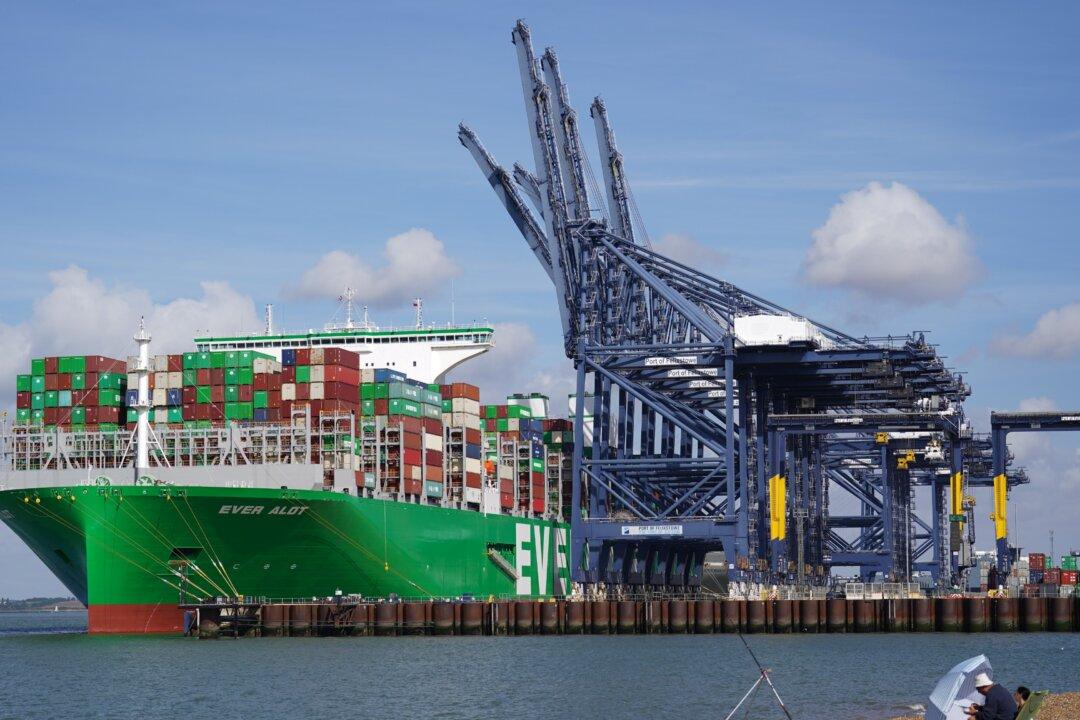The UK’s supply chain “will be severely disrupted,” a union official said on Monday as the strike at the country’s largest container port enters the second day.
Some 1,900 Unite members at the Port of Felixstowe, around three-quarters of the port’s workforce, started an eight-day strike on Sunday in a dispute over pay after the union rejected an offer of a 7 percent raise, as well as a single payment of £500 ($592).





